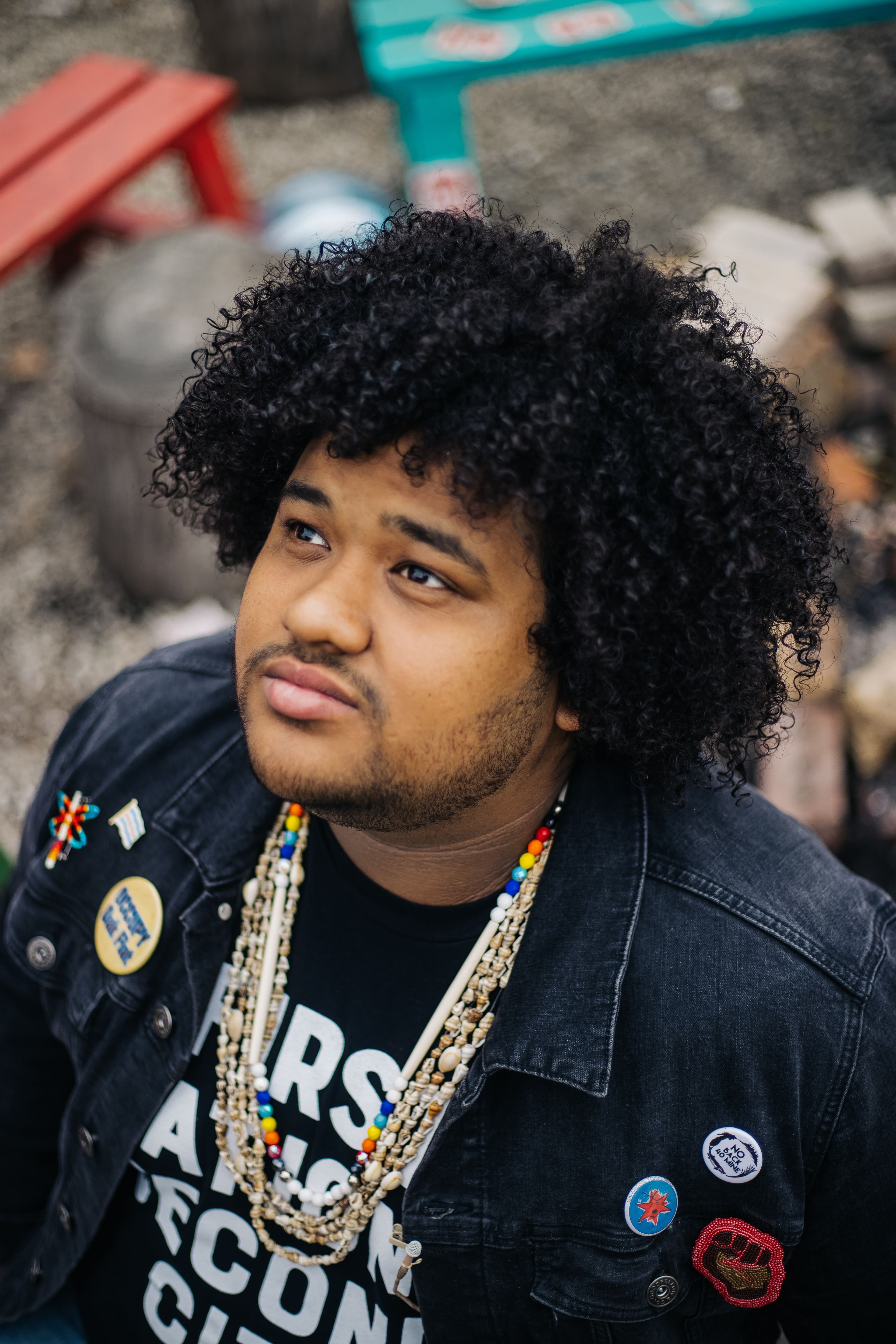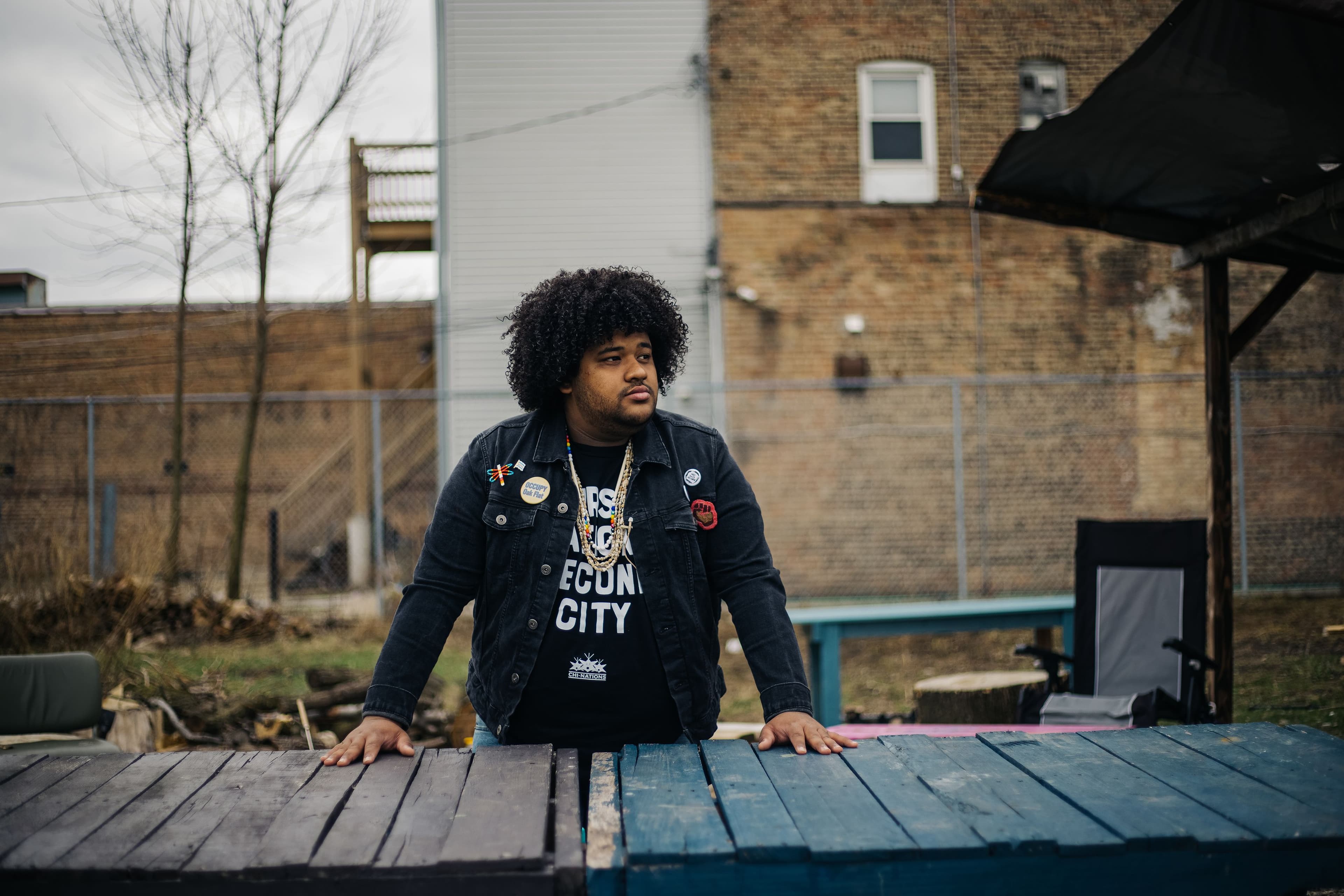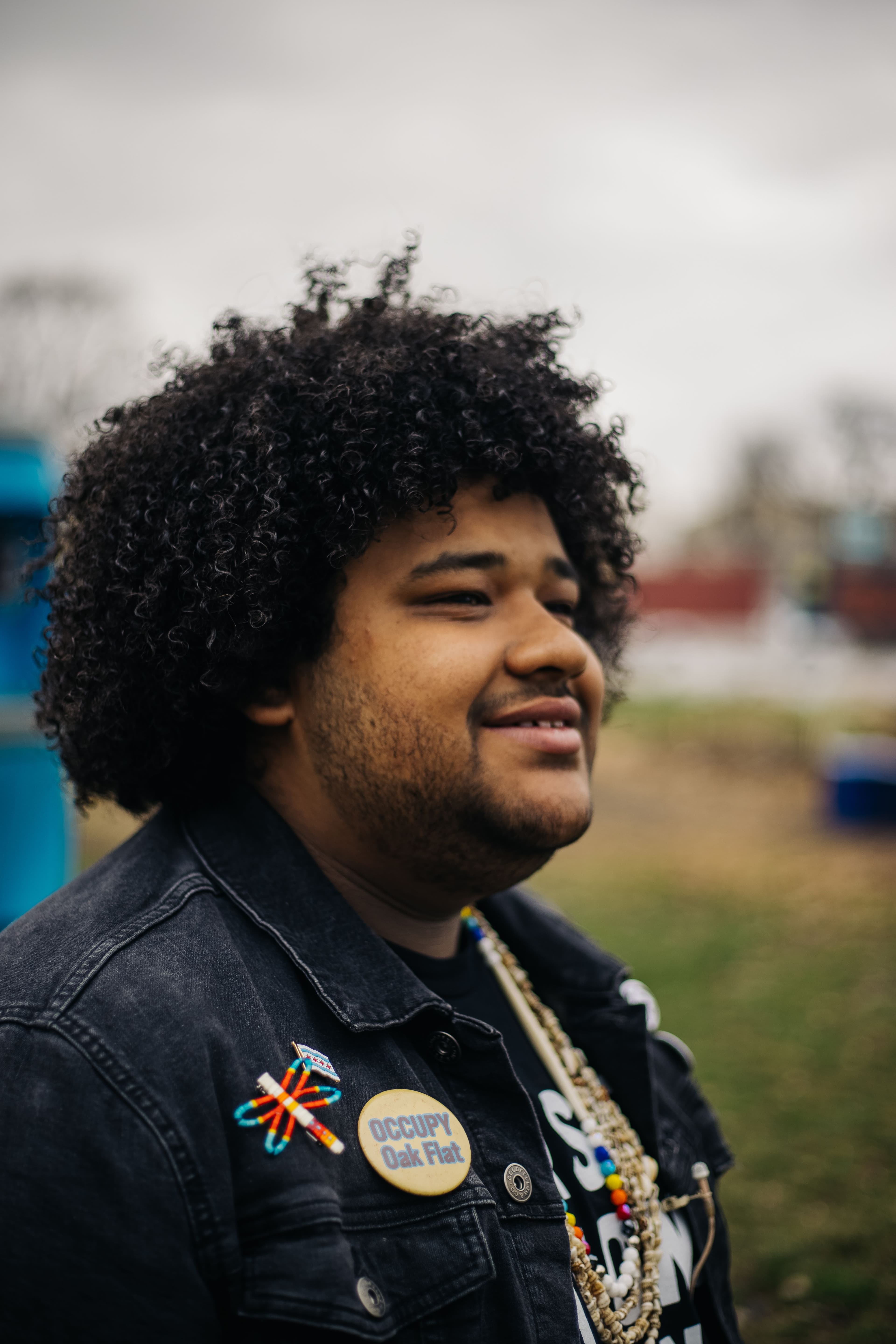
Generation Next: Anthony Tamez-Pochel
Anthony Tamez-Pochel may still be a college student studying social work and policy, but the Chicago-based activist is already a seasoned advocate for Native American rights and cultural preservation. He’s been engaged in community-driven work since he was ten years old, though he sees it as a given for anyone who shares his heritage. “It’s just something we as Native people do, it’s something that we’ve always had to do,“ says the 21-year-old, who identifies as Cree, Sicangu Lakota, and Black. “I think specific to Native people, different from other communities, is any Native people that you meet, they’ve been doing this work since they were born. Their family has been bringing them out to resist whatever it may be in their community.“

As the co-president of the Chi-Nations Youth Council, an organization he founded with his brother Adrien to support Native youth and preserve their culture through arts, activism, and education, Tamez-Pochel has sought to bring awareness to Native causes that have largely been ignored. Certain issues “will get a lot of media attention, it will go and go, and then the media attention will go away while these Native people are still in their communities fighting these fights,“ he says, referring to controversial sports team names or protests like the one against the Dakota Access Pipeline in Standing Rock. “There is so much work that Native people do, it’s insane—from us being up in Northern Minnesota fighting a pipeline to professing our culture to coming back home and running a garden to writing ordinances and legislation for the city.“

Tamez-Pochel also wants the idea of Native American culture to be de-mystified, focusing less on symbolism and more on supporting the communities. “In Chicago, we have the First Nations Garden,“ Tamez-Pochel says about one of the most promising initiatives the Chi-Nations Youth Council has produced and where he was photographed for this story. “We were just notified by the city that Chicago’s Department of Planning and Development is down with the idea of turning the First Nations Garden into a permanent space, so they wrote a proposal with support,“ he says with optimism, noting that it would be the first time tax increment funding has been redirected to the Native community in Chicago. “It turned into a story about Native people and the land, and while land is a very important part of our culture, it’s also used as this thing to turn us into mystery.“ After the social movements that occurred across the country last summer, however, Tamez-Pochel sees a path towards change. “I think the first thing—and definitely that we’ve seen this past summer with a lot of movement building from different communities of color to allies—is just having people sit down and listen,“ he says. “We don’t get to tell our own stories a lot. It’s really important to let Native people especially control the narrative.“
Read this story and many more in print by ordering our inaugural issue here. See the full Generation Next series here.


As a nonprofit arts and culture publication dedicated to educating, inspiring, and uplifting creatives, Cero Magazine depends on your donations to create stories like these. Please support our work here.






